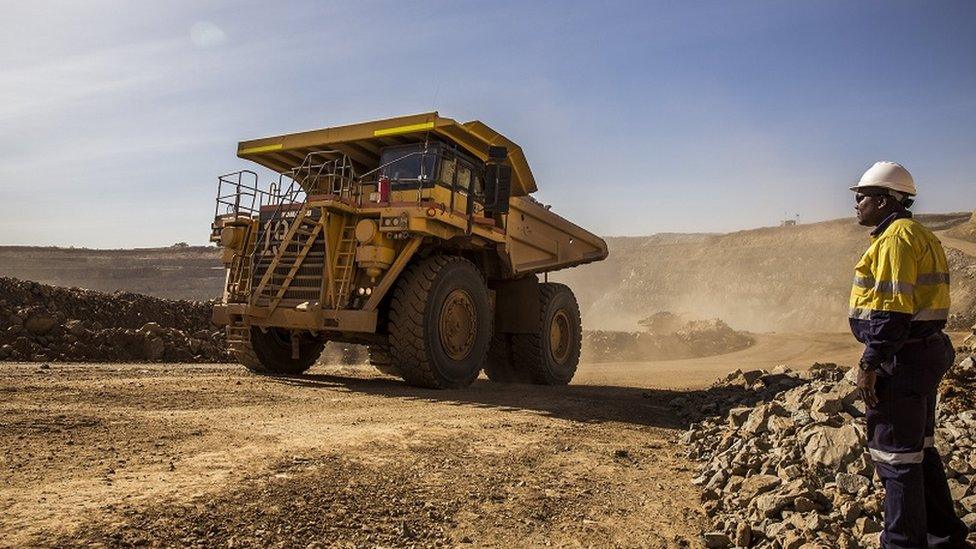Acacia Mining rejects $190bn Tanzanian tax bill
- Published

Gold miner Acacia has been hit with a demand for $190bn in unpaid taxes to Tanzanian authorities in a row it has called "inaccurate and unexplainable".
The demand follows a finding by government-appointed committees that the firm was operating illegally and had understated its gold exports.
Acacia's website says, external that it has declared all materials produced and has paid royalties and taxes in full.
The UK-listed firm's shares were down 7.7% in morning trade in London.
Its share price has been tumbling for months as disagreements with the Tanzanian authorities have grown.
Earlier this month, Tanzania passed two new mining laws that contain sweeping changes to the legal and regulatory framework of the mining industry.
An export ban on gold and copper concentrate exports has been in force since March.
Acacia, which is majority-owned by Canadian firm Barrick Gold, has said the continuation of the ban will hurt its ability to conduct future business in Tanzania, since it covers 50% of its production.
"The security of the 36,200 indirect and induced jobs that rely on Acacia's mining operations, as well as the company's ability to invest in education, infrastructure and health projects will all be under threat."
The bill consists of $40bn in alleged unpaid taxes and a further $150bn of penalties and interest owed.
Acacia operates three gold mines in Tanzania: in Bulyanhulu, Buzwagi and North Mara.
In a response to the authorities in May, Acacia said that if their allegations about its gold production were true, the firm would be producing more from its three mines than rival companies managed to extract from a far larger number of mines.
The changes to Tanzania's mining industry are the brainchild of President John Magufuli, who has been in office since 2015 after being elected on an anti-corruption platform.
In his previous role as minister of works, he earned the nickname of "the Bulldozer" for his determination to implement a road-building programme.
Analysts have been sympathetic to Acacia's case, with Investec noting that the basic $40bn tax bill "is more than twice what all top five global gold miners (including Barrick) combined have paid in taxes since 2000".